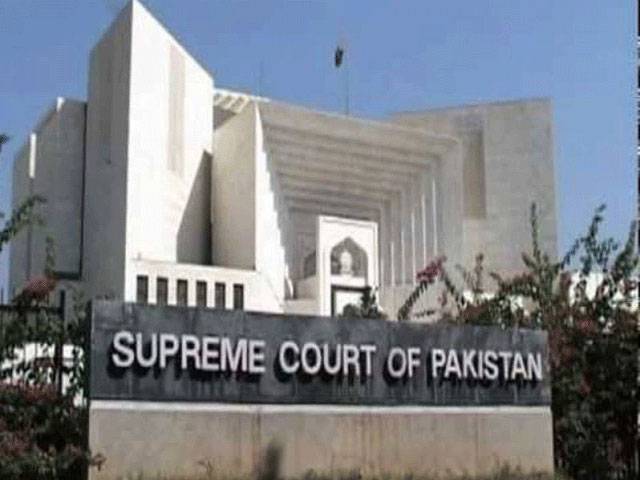ISLAMABAD - The Supreme Court on Thursday held that after the expiration of tenancy period, a tenant, if there is no express consent of the landlord to extend tenancy, can be evicted.
A three-judge bench, headed by Chief Justice Mian Saqib Nisar on 20th September this year had reserved the judgment on eviction of tenants in the federal capital.
Waqar Zafar Bakhtawari and six others, who were tenants of Haji Mazhar Hussain and others had filed the petitions against the order of the rent controller, Islamabad.
The judgment, authored by Justice Saqib, was announced on Thursday.
It said: “After the expiration of tenancy period a tenant though can continue to hold over the possession of the rented premises, but his tenancy is rendered invalid in that it has come to an end, and if there is no express consent of the landlord to extend the tenancy period the tenant shall be guilty of having infringed the conditions of tenancy, rendering him liable to be evicted under Section 17(2)(ii)(b) of Islamabad Rent Restriction Ordinance 2001.
The rent controller had passed the eviction orders on the basis of expiry of the term of tenancy.
It was the stance of the counsel of tenants that the rent controller would only have jurisdiction to pass an eviction order, if the case falls within the purview of Section 17 of the ordinance.
But there is no specific ground mentioned in that section, which enables the landlord to seek eviction of the tenant on the expiry of tenancy period.
He had argued that the orders were not only against the law but passed without jurisdiction.
The lawyer had contended that on account of the expiry of the tenancy period the status of tenant neither extinguishes nor changes and the tenant continues to be entitled to occupy the property and should only be liable to be evicted, if the strict grounds set out in Section 17 of the Ordinance 2001 were met with specifically.
He also contended that the rent controller in order to justify the eviction order relied upon the provisions of Section 17(2)(ii)(b) of the ordinance, which provided that a tenant could be evicted, if he "has infringed any condition on which the building or rented land is held".
However, the landlords counsel, were of the view that if tenant continues to occupy the property after the expiry of that period, it shall be an infringement of the terms and conditions of tenancy in terms of Section 17(2)(ii)(b) of the Ordinance 2001 and such a tenant shall be liable to be evicted.
The apex court noted that the portions of the Section 17 of the Ordinance were the grounds for evictions of tenants, such as, default in the payment of rent, reconstruction, causing damage to the rented property, nuisance, personal requirement etc.
The court said: “It settled that, which interpreting the law, a specific provision of any statute, which is independent in nature, cannot and should not ordinarily be held to be redundant, especially on the touchstone of another independent provision of the same statute, rather all possible efforts should be made to apply and adhere to the rules of purposive and harmonious construction, so that the allegedly conflicting provisions should be reconciled and saved.”
The judgment said that it was the clear mandate of Section 6 of the ordinance that such a tenancy shall come to an end after the expiry of the term of tenancy and if thereafter the tenant hold such a property without the consent of landlord, it shall be a clear violation and the infringement of the conditions of the tenancy specified in Section 6. Thus the case is squarely covered by Section 17(2)(ii)(b) of the Ordinance 2001.






